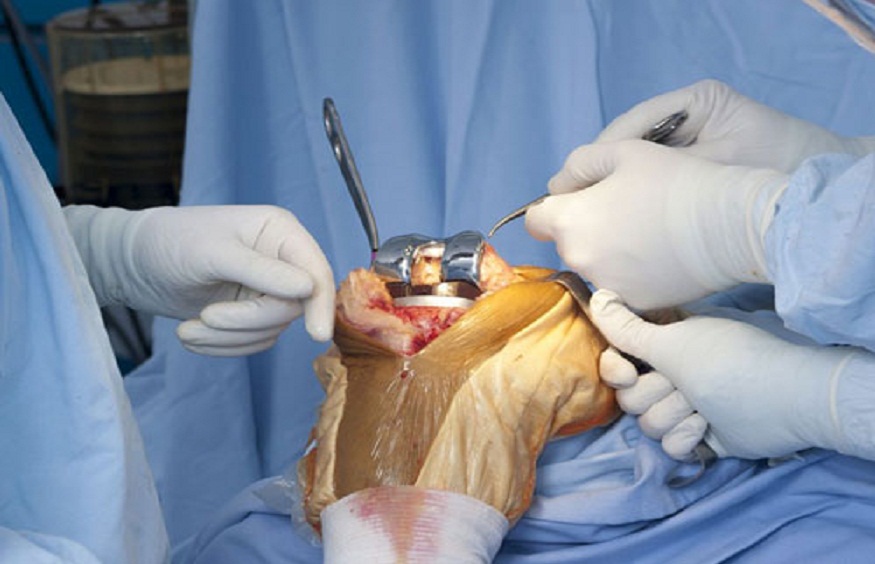 Posted On
Posted On
Pro Tips for Accelerated Recovery Following Joint Replacement Surgery
 Posted On
Posted On
The good thing about joint replacement surgery is that it can greatly improve one’s quality of life by getting rid of perennial aches and regaining lost functionality. Whether you’ve undergone knee, hip, or shoulder replacement, your journey to recovery doesn’t end once you leave the operating room. The journey to recovery continues after surgery and includes modifying habits, performing rehabilitation techniques etc. to make sure you stand up swiftly.
Some essential tips for a faster recovery after joint replacement surgery and how you can ensure a smooth healing process after visiting a joint replacement clinic are-
1. Follow Your Doctor’s Instructions Closely
The most crucial step for a speedy recovery is to strictly follow the post-surgery instructions given by your doctor or surgeon. Whether you’ve had a hip, knee, or shoulder replacement, your surgeon will outline specific dos and don’ts to prevent complications. These instructions may include guidelines on wound care, medications, and when to start rehabilitation exercises.
If you had your surgery at one of the best joint replacement hospitals in India, like Eva Hospital, you can be confident in the recovery protocols they provide. The top doctors for knee replacement at Eva Hospital will not only perform a precise surgery but also guide you on how to manage your recovery process for the best results.
2. Start Gentle Movement Early On
While it might seem counterintuitive, gentle movement soon after surgery can accelerate healing. Most doctors recommend beginning physical therapy or simple exercises within a day or two post-surgery. Early movement helps improve blood circulation, reduce swelling, and prevent stiffness in the joint.
If you had a knee replacement, for example, start with ankle pumps and leg lifts. These small exercises help keep your blood flowing and prevent complications such as blood clots. Gradually, you’ll move on to more specific exercises aimed at restoring mobility and strength in your joint.
3. Attend Physical Therapy Regularly
Physical therapy plays a pivotal role in regaining full function after joint replacement surgery. Your therapist will design a customized program based on your surgery and current mobility level. Whether it’s a knee, hip, or shoulder replacement, regular physical therapy sessions are essential for a quicker recovery.
For patients who had their procedure done at a joint replacement clinic known for its state-of-the-art facilities, such as Eva Hospital, this post-surgery rehabilitation is always a priority. The hospital’s experienced therapists and advanced rehabilitation programs ensure you stay on track toward full recovery.
Consistency is key here. Be diligent about attending all your therapy sessions and doing the prescribed exercises at home. Missing therapy or avoiding exercises can lead to delayed recovery or reduced joint mobility in the long term.
4. Manage Your Pain Effectively
Post-surgery pain is inevitable, but managing it well can significantly impact your recovery time. Pain can prevent you from participating fully in physical therapy, so it’s essential to address it early on. Your doctor may prescribe pain medications or recommend over-the-counter options like ibuprofen to manage discomfort.
Additionally, alternative pain-relief techniques such as cold therapy (ice packs) can help reduce swelling and alleviate pain. Applying an ice pack for 15-20 minutes several times a day, especially after exercise, can make a big difference. As you heal, the pain will gradually decrease, and you may find that you need less medication.
5. Focus on a Balanced Diet for Healing
Diet plays a significant role in recovery, especially when your body is working hard to heal after surgery. Focus on a balanced diet rich in proteins, vitamins, and minerals to support tissue repair and boost your immune system.
Make sure to include:
- Protein: Essential for tissue repair, muscle strength, and overall healing. Include lean meats, fish, eggs, and plant-based sources like beans and legumes.
- Vitamin C: Promotes collagen production, helping to heal wounds. Citrus fruits, strawberries, and bell peppers are great options.
- Calcium and Vitamin D: Important for bone strength, especially after joint surgery. Include dairy products, leafy greens, and fortified foods in your diet.
Proper hydration is also essential, as adequate amounts of water consumption will help in detoxifying the body and assist in lowering chances of infections.
6. Rest and Elevate
Rest is critical after surgery, especially in the first few weeks. While it’s important to stay active with physical therapy and gentle exercises, your body needs time to heal. Make sure to get plenty of sleep and avoid putting too much pressure on your new joint.
For knee or hip replacement patients, elevating the affected leg can reduce swelling and promote healing. Keep your leg elevated on pillows whenever you’re resting, and avoid sitting or standing for long periods in the early stages of recovery.
7. Use Assistive Devices as Recommended
Don’t be in a rush to discard assistive devices like crutches, walkers, or canes. These devices provide extra support as you regain balance and strength. Following your doctor’s advice on how long to use these aids can prevent unnecessary strain on your joint, reducing the risk of complications.
Remember, assistive devices are there to help you in the transition period, so don’t hesitate to use them as recommended, especially during the early stages of recovery.
8. Avoid High-Impact Activities
While motion is advised, patients should refrain from doing activities that are high impact in nature and would exert too much strain on the new joint. The patient should stay away from activities such as running, jumping, or lifting heavy items until full recovery. Such activities are likely to cause added stress on the joint leading to dislocation or injury.
Concentrate on exercises such as swimming, walking, and cycling instead. These activities help you remain active while not stressing the joint and are particularly useful for maintaining fitness levels during the recovery process.
9. Stay Positive and Patient
Recovery after joint replacement surgery requires patience and a positive mindset. There will be good days and challenging days, but staying motivated and focusing on your long-term goal will keep you on track. Celebrate small victories, such as walking unassisted or completing a full set of physical therapy exercises.
If you experience setbacks, such as increased pain or stiffness, consult your doctor. A quick visit to the best joint replacement hospital in India can help address any concerns early and adjust your recovery plan as needed.
Conclusion
Recovering from joint replacement surgery is a gradual process, but by following these tips, you can ensure a smoother and faster healing experience. Start with small, gentle movements, stay consistent with physical therapy, and focus on a balanced diet to support your body’s healing. Above all, listen to your doctor and take care of yourself—your new joint will thank you!
For those seeking top-quality care, consider Eva Hospital, renowned for its advanced joint replacement facilities and expert surgeons. With the support of the top doctors for knee replacement, you’ll have the guidance you need to regain your mobility and live pain-free.








